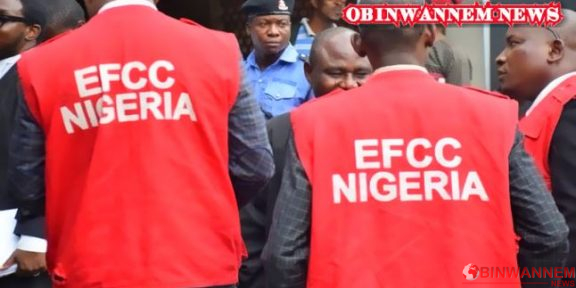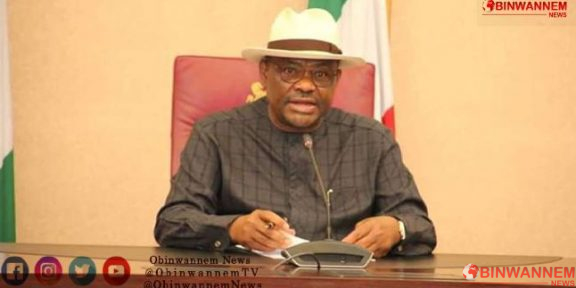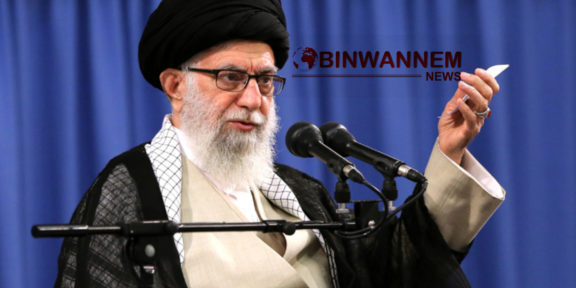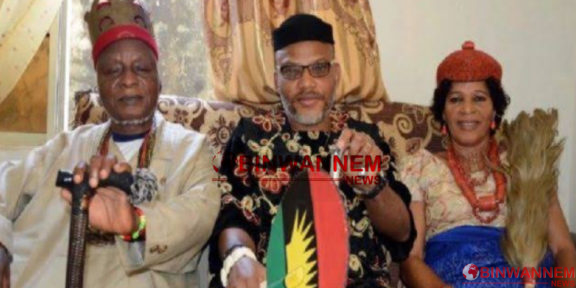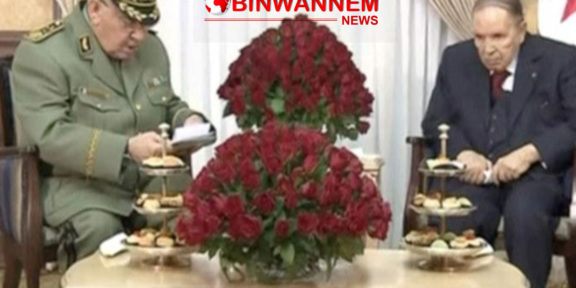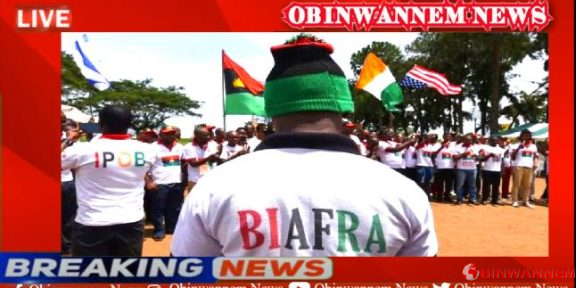as tribunal gets set for judgement, ends hearing Wednesday By Ikechukwu Nnochiri ABUJA- The Peoples Democratic Party, PDP, and its candidate, Atiku Abubakar, on Tuesday, failed to persuade the Supreme Court to compel the Independent National Electoral Commission, INEC, to grant them access to the controversial server they said was used to electronically transmit results of the February 23 presidential election.
Atiku and Buhari The apex court, in a unanimous judgement by a five-man panel of Justices led by Justice Datijo Mohammed, declined to set-aside a ruling the Presidential Election Petition Tribunal delivered on June 24, which rejected Atiku and PDP’s application to be allowed to inspect INEC’s server.
The judgement came barely 24 hours to the date the tribunal fixed to conclude hearing and fix a date for final verdict on the petition seeking to nullify the outcome of the presidential election. It will be recalled that the appellants had in their joint-petition marked CA/PEPC/002/2019, insisted that data they independently secured from INEC’s back-end server, revealed that contrary to result the electoral body announced on February 27, they actually defeated President Muhammadu Buhari of the All Progressives Congress, APC, at the presidential poll, with over 1.6million votes.
The petitioners alleged that INEC had at various stages of the election, unlawful allocated votes to President Buhari to ensure that he was re-elected back to office. They, therefore, applied for leave of the tribunal to enable experts to inspect the server which INEC had insisted was non-existent. However, the application was dismissed by the tribunal which held that granting the request would prejudge the substantive petition since all the petition have already joined issues on whether such central server existed or not.
The Justice Mohammed Garba-led tribunal noted that whereas the petitioners maintained that results of the election were collated and transmitted to the server, INEC, on the other hand, said it was not in possession or aware of the existence of such server. The tribunal stressed that since President Buhari and his party, the All Progressives Congress, APC, who are respondents to the petition, equally challenged the existence of the said server, acceding to the request by the petitioners would prejudice the entire case at the preliminary stage of the proceeding. “The scenario will be unpalatable and will create the impression that the court has indeed recognised the existence of a central server and that the result was electronically transmitted. “
The law is settled that the court should ensure caution while dealing with interlocutory application so as not to make any observation that affects the substantive case”, the tribunal held. Dissatisfied with the decision, Atiku and PDP took the matter to the Supreme Court, urging it to void the ruling and compel INEC to open its server for inspection. Arguing the appeal on Tuesday, counsel to the appellants, Mr. Eyitayo Jegede, SAN, contended that his clients were still within time to access the server and make use of the evidence to be extracted from it.
He argued that the 180 days meant for the tribunal to hear and determine the petition challenging the outcome of the presidential election, had not expired. The appellants decried that the tribunal had by its decision, denied them fair hearing by preventing them from accessing relevant and material evidence they were entitled to under the Section 151(1) of the Electoral Act 2010 (as amended).
They alleged that the tribunal’s denial of fair hearing undermined their petition, saying it failed to consider uncontroverted evidence that were contained in further affidavit they filed for access to inspect INEC’s server. According to the appellants, the tribunal, failed to exercise its discretion judiciously and judicially, saying they adduced sufficient affidavit evidence to prove that results of the presidential election were electronically transmitted to the server. Nevertheless, all the respondents- INEC, President Buhari and the APC- challenged the competence of the appeal, asking the apex court to dismiss it for want of merit.
President Buhari’s lawyer, Chief Wole Olanipekun, SAN, drew attention of the apex court to the fact that all the parties had since closed their cases before the tribunal, inline with a pre-hearing agreement they adopted. READ ALSO: PDP Primary: Don’t allow yourself to be influenced, Bayelsa govt tells delegates He told the court that the lifespan for hearing of the petition before the tribunal would expire on Wednesday when all the parties would adopt their final briefs of argument.
Counsel to the INEC, Yunus Usman, SAN, and that of the APC, Charles Edosamwam, SAN, also prayed the court to dismiss the appeal for being academic. INEC argued that the appellants based their claim on conjectures since it was not empowered by the Electoral Act, 2010, as amended, to embark on electronic transmission of results.
While denouncing what it described as details of “a strange server” that was provided by the petitioners, INEC, urged the court to dismiss the appeal. In the lead judgement that was delivered by Justice Centus Nweze, the Supreme Court, held that Atiku and PDP failed to prove that the tribunal wrongly exercised its discretion against them or that their right to fair hearing was breached. The apex court said it would have intervened assuming the appellants proved that the tribunal took an arbitrary decision that was based on wrong principles of the law.
It said it was the duty of the appellants to adduce materials and expatriate on the wrong exercise of discretion by the tribunal. “The Appellants failed woefully in this ill-advised journey to this court”, Justice Nweze held. He accordingly dismissed the appeal as lacking in merit, a judgement that was concurred to by four other Justices on the apex court bench. Earlier, the apex court panel also struck out the first appeal marked SC/738/2019, which sought to quash an aspect of proceedings of the tribunal that okayed a motion the APC filed for various paragraphs of the petition challenging President Buhari’s re-election to be struck out.
The tribunal had held that it was satisfied that Atiku and PDP failed to file any counter-affidavit in opposition to the motion by APC. In the appeal, the appellants, prayed the Supreme Court to go ahead and review the record of proceedings the tribunal held on June 11, to determine if acted rightly by allowing APC’s motion they argued was filed in gross abuse of the judicial process. When the appeal was called up for hearing, counsel to the appellants, Mr. Eyitayo Jegede, SAN, drew attention of the court to the fact that the constitutionally prescribed period for determination of such interlocutory appeal, had elapsed. Following his unchallenged oral application to withdraw the appeal, it was accordingly struck out. The apex court said it was satisfied that the appeal had become statute barred.
The tribunal had on June 11, struck out a motion the APC filed on May 14 for paragraphs of the petition to be struck out, after it was withdrawn by its lawyer, Fagbemi, SAN. However, shortly after the motion was struck out, Fagbemi, SAN, drew attention of the tribunal to a similar application the party also filed on May 15. He urged the tribunal to grant the application, contending that the petitioners failed to file any counter-affidavit to oppose it. Reacting, counsel to the petitioners, Dr. Uzoukwu, SAN, said he had actually filed a counter-affidavit in opposition to the first motion that was orally withdrawn by the APC.
Uzoukwu argued that since the APC filed two similar motions on the same subject matter, he rather filed a preliminary objection for the tribunal to dismiss them for constituting an abuse of court process, instead of filing a second counter-affidavit. In a subsequent application, Uzoukwu, SAN, challenged the entire June 11 proceeding of the tribunal, insisting that it was wrong to allow the 3rd Respondent to withdraw a motion it filed in abuse of the judicial process.
The petitioners argued that the tribunal ought to have heard their preliminary objection and dismiss the two motions by the APC. Alleging that they would be denied fair hearing, the petitioners prayed the tribunal to allow them to react to APC’s second motion that they did not a file counter-affidavit to oppose. PDP and Atiku also prayed the tribunal for an order extending the time within which they could file a counter affidavit to APC’s motion.
The application was however dismissed by the tribunal which held that the petitioners made a choice not to file counter-affidavit to oppose APC’s motion that was duly served on them on May 16. The tribunal noted that the time within which the petitioners could file their counter-affidavit had elapsed. “The choice was neither a mistake, error or inadvatency of counsel. In law, a choice or election freely made by a party cannot be recalled”, Justice Garba held. The tribunal said the petitioners failed to meet any of the statutory requirement that would warrant it to review its proceedings. Relying on section 285(8) of the 1999 Constitution, as amended, the tribunal said it would deliver seven pending rulings that touched on both the competence of the petition and its jurisdiction to entertain it, alongside the final judgement.
Read more here>>> https://www.vanguardngr.com/2019/08/presidential-poll-atiku-pdp-lose-interlocutory-appeals-at-supreme-court/



